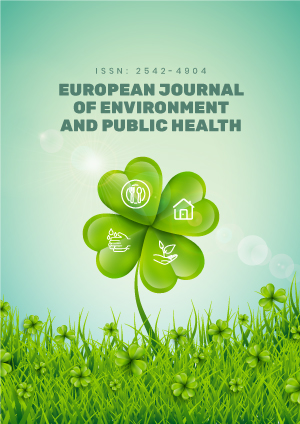Abstract
Malaria is endemic in most countries within the African continent and accounts for high morbidity and mortality in those countries. The Nigerian Government launched the National Malaria Strategic Plan 2014-2020 to address the high burden of malaria in the country. However, like the previous plans, this plan focused more on the vulnerable groups to malaria (i. e. pregnant women, children under five years old and people living with HIV/AIDS) as the target population for the interventions. Men being the heads of the family in most African societies make all health decisions for the family. Many interventions that did not involve men do not succeed because of the decision roles men play in the family. An understanding of the knowledge and perception of men regarding malaria causes prevention, and management would assist in developing interventions aimed at reducing morbidity and mortality related to the disease in the community as well as achieving the Sustainable Development Goal 3.3, which focuses on Ending the Epidemic of Malaria.
Therefore, this study was designed to investigate the knowledge and perception of malaria among Hausa married men in Mokola community, Ibadan.The study was a descriptive cross-sectional survey. A three-stage sampling technique was used to recruit 302 Hausa married men based in Mokola; stratified into the Hausa and Yoruba (Okesu) axis, systematic random sampling was used to select the houses and balloting was used when a house had more than one married man. A validated semi-structured interviewer-administered questionnaire was used for data collection. Knowledge, perception and preventive practices were measured on a 22-point, 26-point and 14-point scales, respectively. Knowledge scores of 1≤13 and scores >13 were categorized as poor and good, respectively. Perception scores of 0≤16 and scores >16 were categorized as poor and good, respectively. Preventive practice scores of 0≤8 and scores ˃8 were categorized as poor and good, respectively. Data was analyzed using descriptive and inferential statistics such as Chi-square test at p˂0.05 level of significance. Respondents’ mean age was 36.4 years, with trading accounting for 97.7% respondents’ occupation. Respondents whose monthly income range from N30,000-N75,000 accounted for 56.0%. Monogamy was practised by 75.5% with 73.2% having less than 5 children. Most respondents (76.2%) correctly defined malaria, with 22.2% obtaining information on malaria from the electronic media. Majority (99.3%) of respondents acknowledged to buying of drugs as one of the roles men should play in the treatment of malaria in their households. Most respondents, 89.1%, had good knowledge on definition of malaria and 97.0% had a good perception towards malaria management in their families with 51.6% of respondents reporting that a family member had malaria less than a month ago. Respondents who used ITN as prevention against malaria for their families accounted for 80.8%. Overall, 78.5% of respondents practised right preventive practice against malaria. The test of association between level of education and knowledge of malaria showed that only knowledge on symptoms of malaria was associated with the respondents’ level of education (p = 0.012). Test of association between level of education and perception of malaria revealed that perception of the respondents on causes of malaria was significantly associated with their level of education (p = 0.003). The test of association between respondents’ knowledge and perception on malaria revealed that knowledge and perception were significantly associated (p < 0.001), also the test of association between knowledge and the preventive practices of respondents revealed a statistically significant association exists between knowledge level and preventive practices against malaria (p= 0.028).
Majority of respondents had good knowledge and perception on malaria and only few reported practicing malaria preventive measures involving spending money for their households. Interventions such awareness through the electronic media and community mobilization on malaria preventive measures focusing on men should be carried out in other communities.
License
This is an open access article distributed under the Creative Commons Attribution License which permits unrestricted use, distribution, and reproduction in any medium, provided the original work is properly cited.
Article Type: Research Article
EUR J ENV PUBLIC HLT, Volume 5, Issue 2, 2021, Article No: em0085
https://doi.org/10.21601/ejeph/11095
Publication date: 18 Jul 2021
Article Views: 4256
Article Downloads: 3040
Open Access References How to cite this article
 Full Text (PDF)
Full Text (PDF)